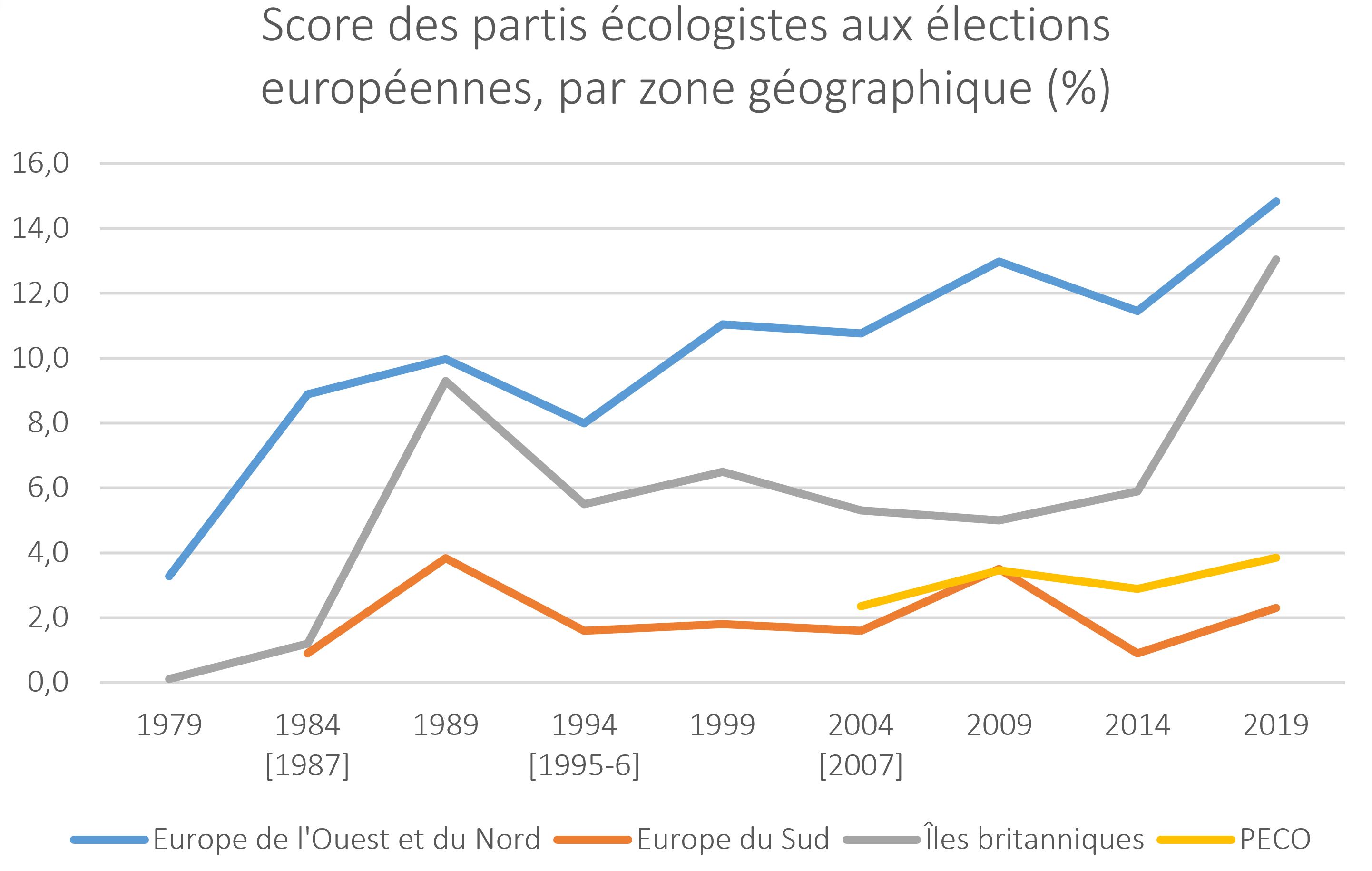Florent Gougou and Simon Persico, Sciences Po Grenoble, Pacte-CNRS
A green wave has risen in Europe at the end of May 2019. 21% for the Grünen in Germany, the second largest political force. 16% in Finland for the Green League, second political force. 15% for the Green Party in Ireland, third political force. Ecological surges are legion, and the case of France, where Europe Écologie Les Verts (EELV) takes third place with 13%, is not an isolated one.
The electoral translation of an environmentalist impulse
This environmentalist momentum had already manifested itself in the success of the Marches pour le Climat, in France and elsewhere. It found its electoral expression in this election, even if it did not sweep away everything in its path. For the wave is not a breaker. Nowhere are the Greens in first place. And, as if by symmetry, the Greens' surge was matched by the success of the radical right-wing parties.
Nevertheless, these European elections undeniably mark a new stage in the Greens' electoral development at European level. European level. Never before have the Greens achieved such a high level of support across the European Union (EU) countries, with average national scores, at the time of writing, reaching 9.5% at the time of writing. And never before have they sent sent so many MEPs to the European Parliament: with over 70 members, the Greens/European Free Alliance will become the fourth largest group in the European Parliament.

In several countries, the Greens have a window of opportunity to permanently alter the political balance on the left of partisan systems, an area historically dominated by the Social Democrats. In Germany, the SPD continues to decline in favor of the Grünen. In France, the PS has collapsed and been ousted from the club of governing parties. Meanwhile, in Luxembourg, the Greens scored a record 18% in a coalition government with the Liberals and Social Democrats.
Drawing up this list of ecologist successes, concentrated in Western European countries, also points to deep geographical divisions within the within the European Union - with four distinct blocs. Thus, while the Irish and British Greens, once slightly behind, have joined their continental European counterparts over the 10% mark, this is not the case in southern Europe, where the Social Democrats are holding their own, or in Central and Eastern good levels, or in Central and Eastern Europe, where the Green parties remain weak and competing in their political space with pirate-style radical-democratic parties. pirate-type parties.

A surge whose scale needs to be qualified
Two other factors put the scale of the Greens' surge into perspective. The first is linked to the nature of European elections: second-order ballots, which traditionally benefit peripheral forces at the expense of government parties. In fact, Green scores at European level have always been better than their results at national level (2.5 points higher on average over the period 1979-2014). This year, the same parties obtained an average of 7.5 points more than in the last national election. Once again, this is a record, which may augur a lasting transformation of the partisan balance. But part of this success is due to the relative importance that the majority of citizens attach to the European elections.
The second element of nuance is linked to the division of the movement: green parties sometimes suffer from competition from marginal competition from marginal lists claiming to be ecological, benefiting from the benefiting from the green wave, but reducing their scores and their parliamentary representation. This was the case this year in Germany, France and Portugal. Portugal.
What capacity will the strengthened Greens/EFA to influence the balance of power within the European Parliament, and more widely European policies? The weakening of the conservatives and social democrats opens the game.
The Greens could thus make the most of the negotiations negotiations. Will they succeed in obtaining vice-presidencies in the European Parliament? They probably will. These positions are important to them. They have a strong presence in European parliamentary life, and are accustomed to the the quest for compromise that prevails in Brussels and Strasbourg. This has enabled them important victories for them during the previous mandate, on electric important victories in their eyes during the previous mandate, on electric fishing and the protection of whistleblowers for example. for example.
Will they go so far as to appoint an ecologist commissioner? commissioner? Such a situation would be unprecedented, and depends in particular on the balance of the governments in which they participate, in Sweden or Luxembourg, for example. It's a reminder of the extent to which the EU's the EU's political center of gravity. If they want to transform European policies, the Greens must now become credible credible contenders for national power. This means convincing them of their ability to lead executives - which they are already doing in some in some regions and communes. The green wave is certainly not a flood. But it has enabled this political family to take another step in this direction. in that direction.